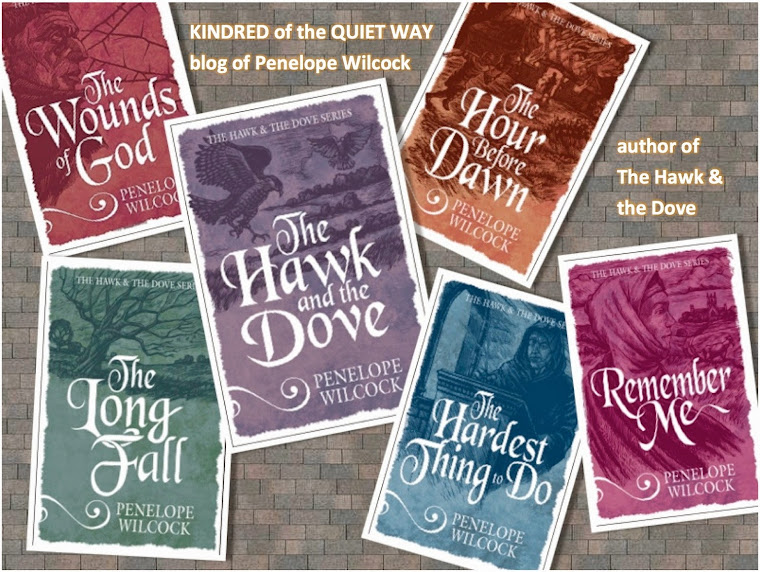My
beautiful mama grew up on a farm in a small Yorkshire village. Her father left
it to her brother, and my childhood school holidays often included a journey up
to Yorkshire to stay with my Grandma in her bungalow – the last house in the
village, beside a field of red wheat – and visits to my uncle and auntie and
cousins in the old farm. I remember it so vividly; the bullocks by the field
gate, their breath steaming in the winter cold, the grain pouring down the
hopper into sacks in the barn, dust rising in the slanting sunbeams.
It
was a busy household when my beautiful mama was a child. Her mother did the
books for the farm and kept the poultry; the care of the children and the
household chores were undertaken by Suzy, a kindly, round person whom I never
saw out of an apron, her hair combed back into a bun. Her face was like an
Albanian’s. Her husband George did the hedges and ditches.
Besides
Suzy and George, there were the horsemen. They lived in the outbuildings, and
my grandfather went every year to the fair to hire the horsemen for the year.
As well as them, prisoners of war worked on the land. And of course there were
other men – shepherds and various merchants, who came to the farm. And there
were the animals – dogs, cows, hens, sheep; but no pigs that I remember.
In
my beautiful mama’s childhood, the people spoke broad Yorkshire; and still
today the accent is pronounced in the Yorkshire branch of our family – and I
love it. My grandfather, my father’s father, knew the words of broad Yorkshire.
But
many of the old phrases have gone. There’s a word, brussen, which can mean
‘very full’ – like ‘bursting’. But my beautifl mama remembers it as they word
they used for doing up, or fastening, braces (US suspenders). ‘Brussen tha
galuses’ meant ‘fasten your braces’, she tells me.
Nowhere
else have I come across that phrase, until recently when I was reading a book
by a young man who left his Amish family for life in the mainstream. He
commented that the Amish word for braces/suspenders was ‘galuses’.
I
wonder how it travelled? The Amish broke away from the Mennonites, who
originated in Switzerland. Switzerland has both French and German. Some of the
tribes populating Old England were Germanic. So I wonder if the word is very
old and started from Germany, infiltrating German Swiss and Old English?
I
thought perhaps it originated from England and crossed the Atlantic with the
Pilgrim Fathers, finding its was into American Amish in due course. Except that
the Amish are so closed and separate a society that there may not be much
cross-fertilisation with the language of mainstream culture. I’m not sure.
The
roots and drifts and wind-borne seeds of language intrigue and delight me. And
Yorkshire, even after all these years in the alien south, still feels like home.
I grew up in the south-east, but all
my family were Yorkshire people. I still miss it. The northern outlook,
mannerisms and attitudes are very different from those of the south.
* * *
Afterthought.
I’m just wondering – if ‘brussen’ generally means ‘burst out of’ or ‘very full’
or ‘burst’ – perhaps my beautiful mama misunderstood what she heard. She
thought it meant ‘fasten your braces’, which would imply the braces were, or
had come, undone. Yorkshire humour being what it is, and given the laconic
dropping of unnecessary words, maybe ‘brussen tha galuses’ impied ‘tha’s brussen tha galuses’ – ie, ‘you’ve
burst out of your braces’, ie ‘they’ve come undone,’ ergo, ‘do ‘em up’?
